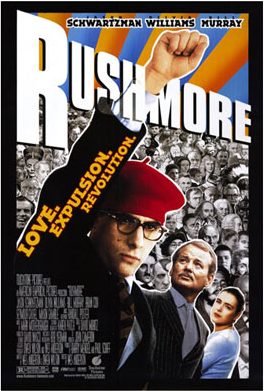 |
| Ben Gazzara in The Killing of a Chinese Bookie |
I am never going to be a fan of John Cassavetes's movies, and I don't care if I ever see The Killing of a Chinese Bookie again, but I have to admit that his unconventional moviemaking had a deep influence on American movies. What could be more conventional, after all, than a film about a club owner forced by the mob into assassinating a rival mob leader? It's the stuff of 1940s film noir, and of countless movies afterward. But Cassavetes's unconventional approach to conventional material obviously exerted an influence on directors like Martin Scorsese and Quentin Tarantino, to name only the best. The club owner is Cosmo Vitelli, played superbly by Ben Gazzara, who runs up gambling debts he can't start to pay. So the mobsters agree to forgive the debt if he will kill their chief rival, the Chinese bookie of the title, who turns out to be the capo di tutti capi in L.A.'s Chinatown. (The film was made two years after Roman Polanski had Jake Gittes told to forget it.) And although a full plot summary would reveal its conventional bones, it's what Cassavetes, along with the improvisatory crew of actors and his freewheling cameramen, does with the material that matters. Cosmo's club, for example, is a strip joint with a master of ceremonies called Mr. Sophistication (Meade Roberts), who resembles Joel Grey's M.C. of the Kit Kat Klub in Cabaret (Bob Fosse, 1972) only in that he's heavily made up and a bit epicene. As the girls sashay about topless in shabby costumes, he sings (very badly) sentimental oldies like "I Can't Give You Anything but Love," "After the Ball," and "Imagination." The effect is gruesomely hilarious, a tone that persists throughout the film. When Cosmo sets out to accomplish his murderous mission, he's been provided with a stolen car that's been hot-wired, so he can't stop anywhere once he's started. But the car blows a tire in the middle of freeway traffic, eliminating that part of the plans. Nevertheless, he persists, calling a cab to get him closer to the target. First, however, he has to buy a dozen hamburgers to feed and quiet the guard dogs, but the waitress argues with him that he really doesn't want them all put unwrapped in a single bag. These mishaps are the stuff of black comedy, and they're nicely handled. But Cassavetes's improvisatory style and the somewhat dizzying hand-held closeups on the action seem more mannered than is really good for the film. There's brilliance here, especially in the performances of Gazzara and the mainstay of many Cassavetes films, Seymour Cassel, but the whole thing seems like a rough draft of a better movie.














